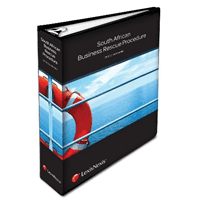The South African economy was placed under pressure beginning with the Covid 19 pandemic. More and more companies are facing severe financial distress and as a result there is an urgent requirement for the application of the business rescue process. We have seen high profile business rescue filings in the news such as SAA, Comair, Edcon and Pumulela.
Never before has the Business Rescue process been as relevant as it is right now!
Business rescue provides an alternative option for saving a company teetering on the brink of insolvency, that of a fresh start, and needs to be considered by all those involved with the failing entity. The Companies Act no 71 of 2008 allows accountants to become Business Rescue Practitioners, opening up a new revenue stream for their businesses. Business Rescue is a specialist area and a Business Rescue license provide the evidence required that you have mastered the subject area and will be able to deliver quality work as a Business Rescue Practitioner(BRP).
CIBA is a CIPC accredited professional body for business rescue practitioners and offers a practical exam preparation course, to qualify as CIBA Licensed Business Rescue Practitioners.
The development and presentation were done by Dr Eric Levenstein. He has been involved with assisting boards of directors and financially distressed companies with restructuring and rescue mandates for over 30 years, achieving successful restructuring and turnaround of companies that were on the verge of collapse.
As specialist in Business Rescue you will stand out from the crowd, be able to attract more clients and earn a higher income.
Restructuring and reorganising of companies in financial distress rather than going the pure liquidation route is on the increase globally. In line with this trend, the Companies Act no 71 of 2008 facilitates business rescue in the South African landscape.
The purpose of business rescue is to maximise the likelihood of a company continuing in existence on a solvent basis. The key to business rescue will be the successful development and implementation, if approved by creditors, of a plan to rescue the business by restructuring its affairs.
The Act provides for this process of reorganising a company’s operations, assets liabilities and equity. Financially distress business that take a decision to start rescue proceedings can file a notice with the CIPC. A practitioner is appointed by the CIPC, which requires that he/she be a good standing member of an accounting, legal or business management profession.
Read the revised CIPC requirements for licensing a BRP here and read more on the CIPC website here
TEXTBOOK
The study guide and units refers to sections within the following prescribed textbook for participants own account:
South African Business Rescue Procedure
Dr Eric Levenstein (January 2025) LexisNexis South Africa
ISBN/ISSN: ISBN: 170SABUSRESYS

Dr Eric Levenstein
Dr Eric Levenstein has been a director at Werksmans Attorneys since 1993 and is the head of the firm’s Business Rescue, Insolvency & Restructuring Practice. He specialises in litigation and dispute resolution, with a particular focus on business rescue, insolvency and restructuring, banking and finance and corporate recoveries of debt.
Eric has regularly contributed to the development of law concerning business rescue, having written legal briefs, journal articles and media reports. He has also appeared on radio and television to discuss the subject. Eric has given numerous presentations at various forums and seminars on related issues, including the law on director liability.
Eric is the Chairperson of the South African Restructuring and Insolvency Practitioners Association (SARIPA) and is a member of SARIPA’s Restructuring, Business Rescue and Government Liaison Committees. He is also a member of INSOL International, a worldwide group of insolvency practitioners and attorneys, and was appointed SARIPA’s representative on INSOL International’s main board (October 2018–October 2021).
Eric has acted in various high-profile business rescue matters including those concerning Pearl Valley Golf Estate, Southgold Exploration, Ellerines, Advanced Technologies & Engineering, Meltz Success, On-Digital Media (Top TV), Moyo Restaurants, Optimum Coal Mine, Stuttafords, Hernic Ferrochrome, SA Calcium Carbide, Basil Read and Group Five Construction. He is named as a leading insolvency and restructuring lawyer by Who’s Who Legal (2014, 2016–2019), a leading lawyer in restructuring/insolvency in Chambers Global (2017–2019) and a highly recommended lawyer in dispute resolution (business rescue) by Legal500 (2012–2017). Eric has a BCom and an LLB degree, Higher Diplomas in Company Law and Tax and a Diploma in Insolvency Law. He was awarded his LLD in Business Rescue by the University of Pretoria in 2016.
As a CIBA licensed practitioner, you will:
The License consists of the following 12 study units.
The following event is awarded 17 CPD units in Business Rescue
+27 (0) 12 643 1800/2/4 ciba@myciba.org www.myciba.org
Gauteng: Spaces, Byls Bridge Office Park, Building 14 Block B, Cnr of Olievenhoutbosch Road and Jean Avenue, Centurion, 0157
Cape Town: Cape Town Spaces Office, Century City, No1 Bridgeway Road, Bridgeways Precinct, Cape Town, 7441
Namibia: Regus Office Windhoek, Maerua Mall 3rd Floor, Windhoek, Namibia, 10005
Paris: I13 Rue Paul Valéry, 75116 Paris, France (ICFOA)